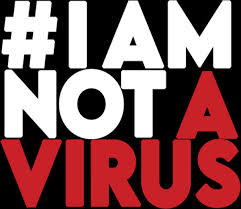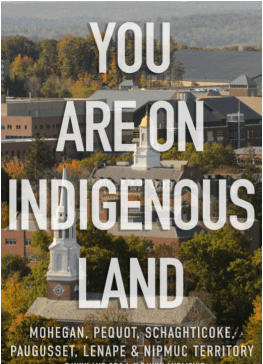UConn Association for Asian American Faculty and Staff (AAAFS) Statement on Anti-Asian Violence
The first cases of Covid–19 in the United States were reported in January 2020, and since that time there has been a massive increase in anti–Asian violence across the United States. STOP AAPI HATE notes that hundreds and sometimes thousands of reported incidents occur every month. They report that incidents of verbal attacks, avoidance, physical assault, online harassment, and being spit upon are the most common forms. A recent New York Times article also details many of the abhorrent and deplorable crimes and actions that have targeted Asians over the last year. It is a sad compendium of history and facts that delves into the nuances and complications related to anti–Asian racism. Nationally, attacks are most common in businesses, public streets and sidewalks, parks, online and in public transit, but they also happen here at UConn. More>
Dr. Martin Luther King Jr. acted against racial injustice with love for Black people and with conviction for what was possible for everyone when Black Lives Matter. MLK’s legacy is one of action and community. His legacy requires us to acknowledge the pain and to take collective action to address systemic injustices.
UConn and its Office for Diversity and Inclusion are committed to upholding MLK’s legacy by working in solidarity as a community to uplift Black and other minoritized people and communities. In this video, we name the pain and we name the community action we are taking to work toward racial justice at UConn. We do this because actions speak louder than words, but our words and commitments matter. Most of all, we do this because at UConn we are clear that Black Lives Matter.
A Land Acknowledgement is a formal statement that recognizes the unique and enduring relationship that exists between Indigenous Peoples and their traditional territories. To recognize the land is an expression of gratitude and appreciation to those whose territory you reside on, and a way of honoring the Indigenous people who have been living and working on the land from time immemorial. It is important to understand the long standing history that has brought you to reside on the land, and to seek to understand your place within that history. Land acknowledgements do not exist in a past tense, or historical context: colonialism is a current ongoing process, and we need to build our mindfulness of our present participation. It is also worth noting that acknowledging the land is Indigenous protocol. (from http://www.lspirg.org/knowtheland)
UConn's Land Acknowledgement Statement for Storrs campus
We would like to begin by acknowledging that the land on which we gather is the territory of the Mohegan, Mashantucket Pequot, Eastern Pequot, Schaghticoke, Golden Hill Paugussett, Nipmuc, and Lenape Peoples, who have stewarded this land throughout the generations. We thank them for their strength and resilience in protecting this land, and aspire to uphold our responsibilities according to their example.
Pronunciations
Mohegan (Mo-he-gan)
Mashantucket Pequot (Mash-un-tuck-it Pea-kwaht)
Eastern Pequot (Pea-kwaht)
Schaghticoke (ska-teh-COKE)
Golden Hill Paugussett (paw-GUS-it)
Nipmuc (Nip-muck)
Lenape (Leh-NAH-pay)
The collective strength and intellectual power of the College of Liberal Arts and Sciences reside in the diversity of its community. Our learning and research successes are built on a variety of perspectives, people, and experiences. The College, therefore, is committed to building and enhancing a diverse and equitable faculty, staff, and student community, and to supporting innovative research and learning experiences that will shape a better tomorrow for all people. For more >>
The National Communication Association is a major professional organization for scholars in the discipline of communication. NCA’s commitment to inclusivity flows from its mission statement in seeking to cultivate an organization in which all members feel valued and respected, as well as enabled and supported to achieve their professional interests in teaching, research, and service. NCA’s framework for inclusivity encompasses all the ways that individuals or groups differ, while also focusing explicitly on historically underrepresented persons/groups in the categories of race, ethnicity, gender, sexual orientation, gender identity, citizenship status, ability, nationality, religion, socioeconomic status, veteran status, and their intersections. For more >>


